26 Jun $20 can purchase you a child in Ghana. What if you could prevent that exchange?
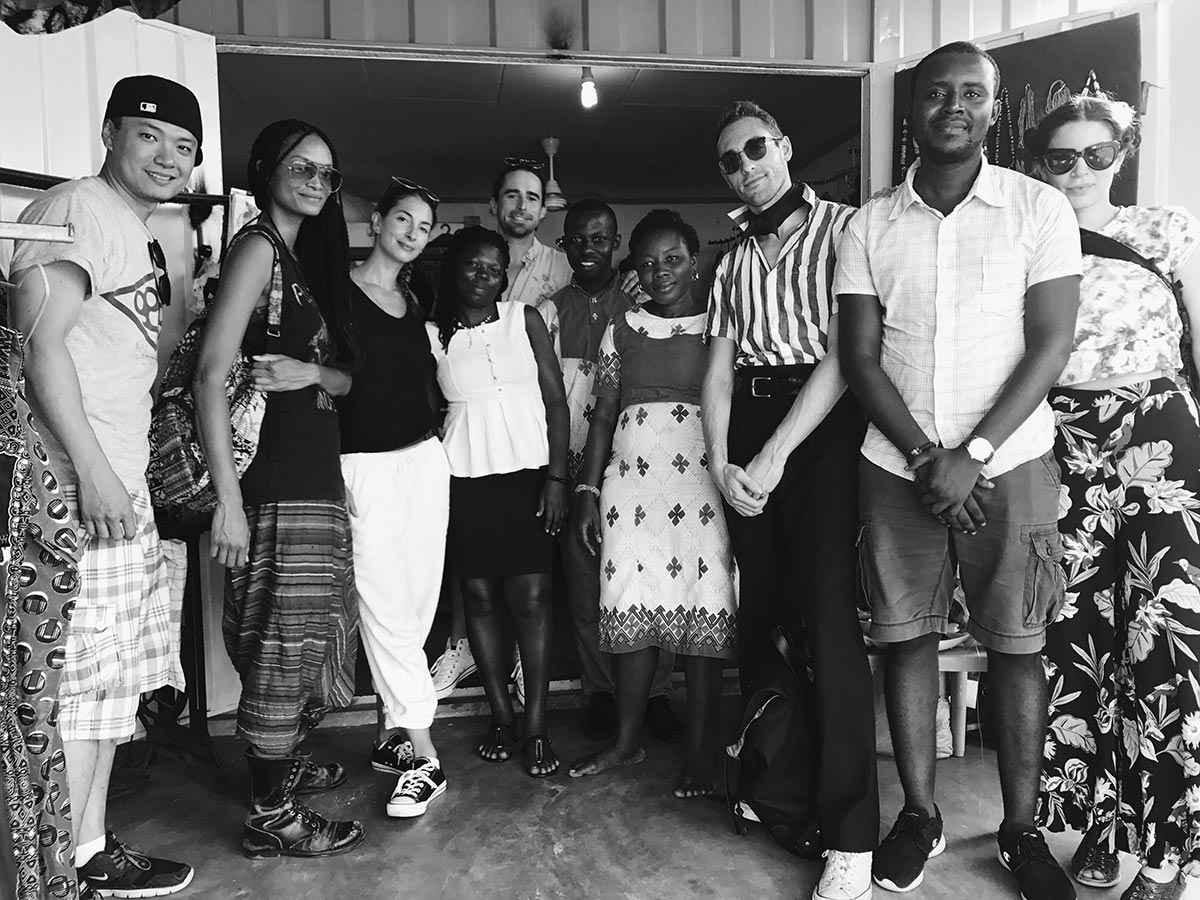
Article By Zephy
Photography by Challenging Heights
It’s been twenty-four hours since we’ve arrived in Ghana, a vibrant country filled with gregarious and good-natured people. We’ve been greeted with an abundance of huge, kind smiles, graciousness, and plenty of fried rice. For our first day, the BFF team stepped into the classroom to learn the ins and outs of Challenging Heights, the amazing anti-child labor organization we are here to support. As it goes when learning the detailed realities of poor human welfare, we were humbled by what we learned.
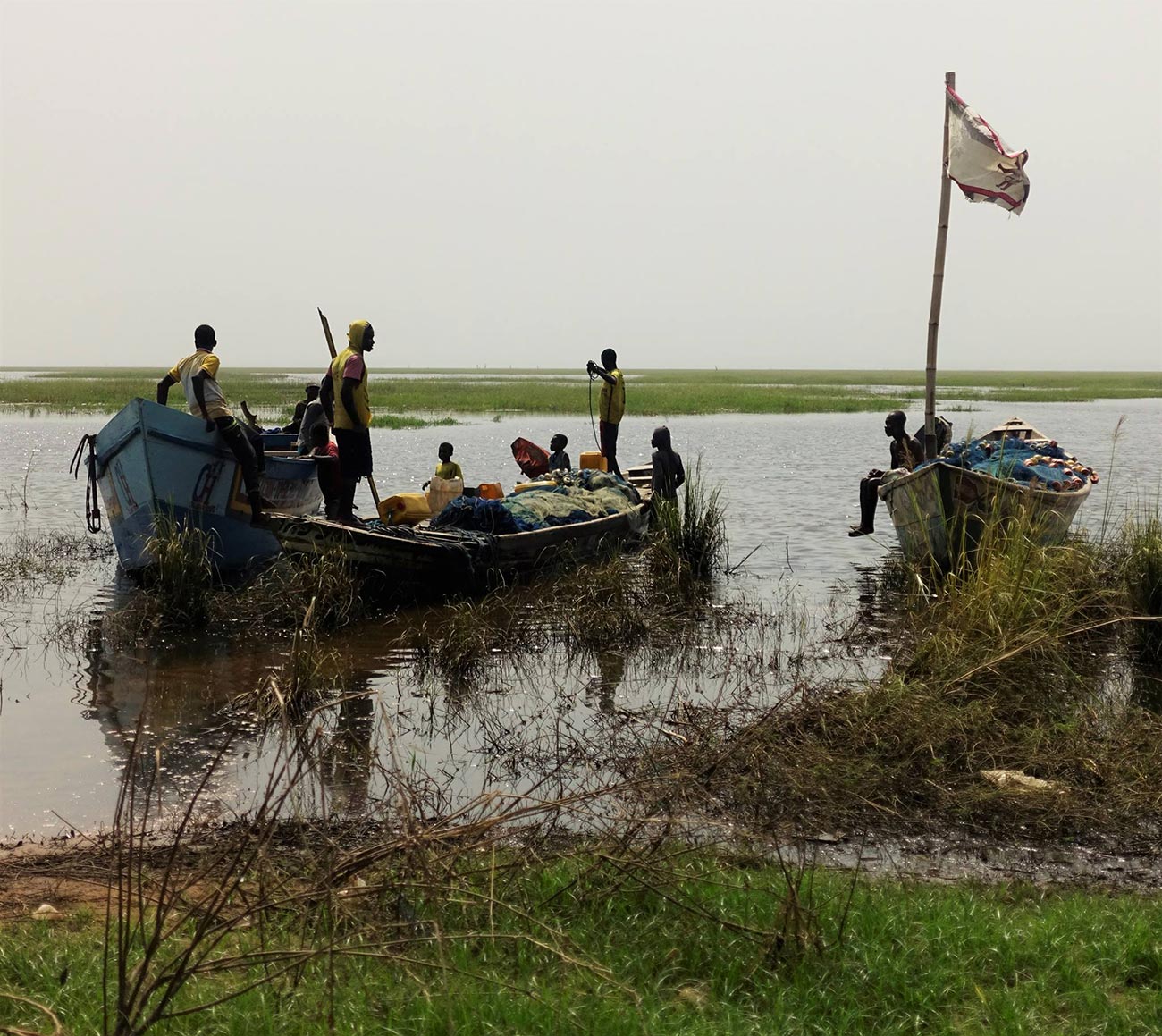
Founded by a very inspiring Survivor by the name of James Kofi Annan in 2007, Challenging Heights has been responsible for advocating, rescuing, rehabilitating, educating, empowering, and reintegrating children back into their community. They target their rescues to one problem area specifically; the fishing industry on Lake Volta, the largest man-made reservoir in the world, and a hub for child slavery. Once children are rescued, they’re taken back to the Challenging Heights shelter where they will be given proper care, nutrition, safety, education, skills, shelter, and therapy necessary for reintegration. Afterwards, CH monitors them for the two years following to ensure they are well cared for and not re-trafficked.
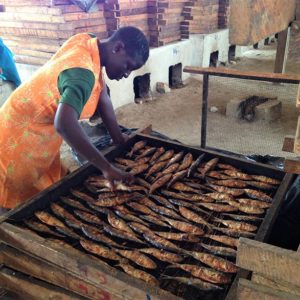
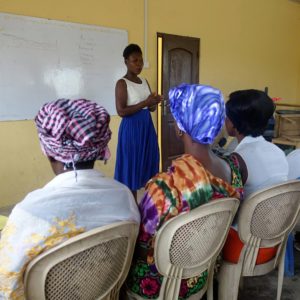
CH also focuses on prevention, which is key. Why are Ghanaian children trafficked in the first place? The root causes are naivety, poverty, and familial separation. The platform they’ve implemented is called the Women’s Economic Empowerment Programme, or WEEP; supporting the women of the region provides them the ability to raise their children within their communities. How does CH’s WEEP help do this? For starters, the fishing local to Winneba is only seasonal, from August-October, meaning the remainder of the year the mothers (in a home where a father has abandoned the household) and children need to commute long hours both ways just to get their supply of fish. This trip also leaves them susceptible to robbery, plus the time spent doing this means their child isn’t in school. Once they do get their fish home, it’s then cooked on a smoker they’ve made out of mud. Guess what happens when it rains? Their smoker washes away. This leaves the women with no choice but to rent an expensive cement smoker that is often unaffordable. This same fish that’s been so hard to come by will also spoil by the end of the day since they can’t afford refrigerators, meaning this stressful commute for their livelihood is being made daily. What CH has done is amazing- they drive to market on behalf on the women, buy enough fish to support their business, then let the women buy the fish at the same market price they would’ve purchased it for, saving them the travel time and danger. They have also opened up a community cold storage so they can keep their fish longer than one day. Further still, CH built 58 permanent covered smoke-ovens that the women can use for free. Rain or shine. How do the women qualify to be in the WEEP? Their children need to be enrolled full-time in school and have a health card. Which brings us full-circle; by educating the women and requiring their children attend school, this now social requirement thus prevents further child trafficking. Doesn’t it warm your heart? Amazing! Not to mention genius. WEEP also offers microfinance for viable business ventures in the form of goods that do not need to be repaid and vocational training, but the point is this; Challenging Heights is utilizing the resources it’s given in inspiring and responsible ways to lift Ghanaians out of red-zone poverty.
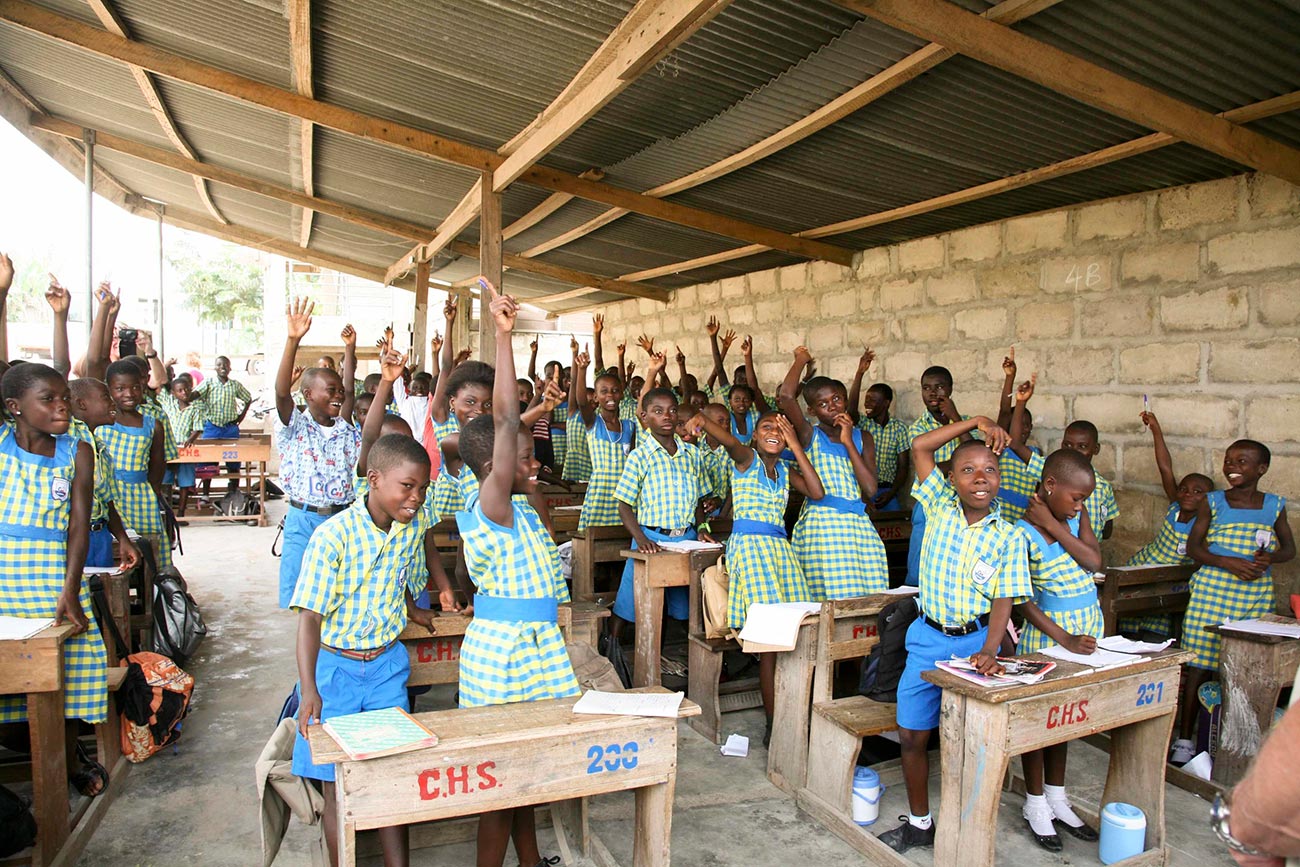
Beauty for Freedom would like to further support Challenging Heights and all It’s do-goodness with financial resources before we depart Ghana, this is where you come in. You may be thinking: “There is little I can do that will even matter…” However, of course, I’m here to tell you, au contraire! Human trafficking is a global issue, and all human oppression is connected. If you turn your head thinking not much will matter, then, it won’t. The mentality we all need to live in is one of hope. We may not be able to do everything, but we can all contribute something in whatever capacity that is right for us.
The same twenty dollars say, you spent on lunch, used here in Ghana could’ve purchased you a child. You heard right, and that is not an exaggeration. Twenty US dollars can purchase you a child here in Ghana. What if you could prevent that exchange?
It goes something like this: child persuasively purchased from a poverty stricken family, for this $20, the child will live the entirety of his or her life in slavery. He or she will quickly learn the way of their new life. They will be given at best two unbalanced meals daily, their nutritionally deficient diet will wreak havoc on their developing minds and bodies. They will live and sleep in inhospitable conditions. They will receive brutal corporal punishment and threats on their lives should they try to escape. They will be forced to work daily and year-round. For the boys, they will catch the fish and man the nets, until they have brought their sufficient quotas for they day they are not done. Boys have drowned during this process, their slave handlers not letting them back onto the boats until they get more fish. The girls enslaved in this area have a slightly different story, they may be forced to sell the fish, or work as house or sex slaves. Neither will ever receive an education. They will never be able to comprehend how they should be loved, and are worthy of freedom. They will suffer great psychological damage from all of this. These children will have no-one to trust, and may live in such fear that they would first collapse with schistosomiasis or hepatitis B or some other sickness before they would consider telling an adult they aren’t feeling well.
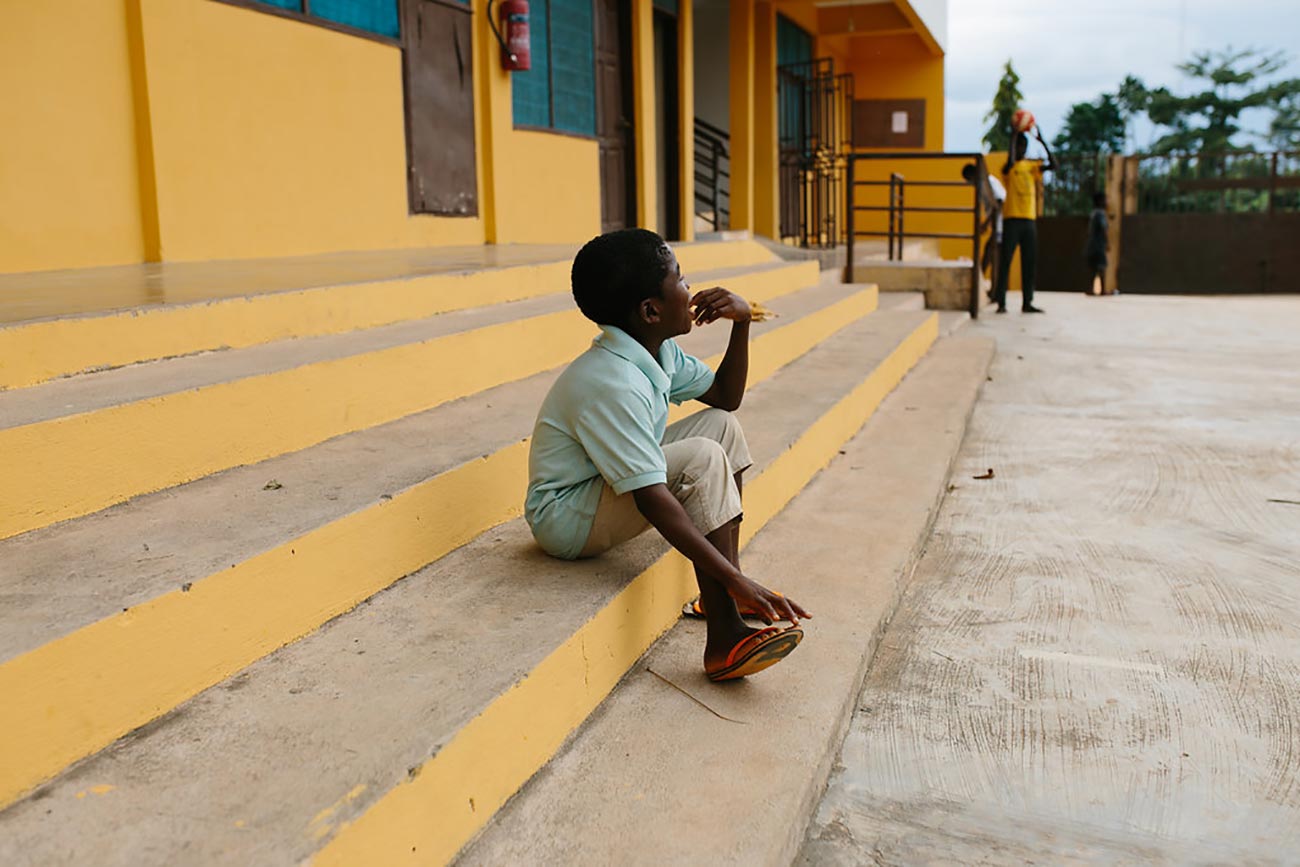
A little more bad news: Ghana is listed as ‘Tier 2 Watchlist” on the worldwide index of countries for the Trafficking Victims Protection Act (TVPA). This means they do not fully comply with the minimum standards to eliminate trafficking. Being that it’s Ghana’s second year on this list, they can’t be on it a third. Countries either need to improve, or get bumped down to Tier 3. This Tuesday, 2017’s rating will be released, and many Ghanaians believe that the country may be pushed to Tier 3, and what does this mean for Ghanaians? It means they lose 600MM annually from the United States to help them combat human trafficking. Currently their government is funneling this money to things other than it’s intended use. These funds are supposed to be used to better the countries law enforcement, prosecution of human traffic offenders, protection agencies, public awareness, and victim services. The government has not taken responsibility for this task, which leaves NGO’s like Challenging Heights with the responsibility of not only rescuing these children, which can take multiple weeks, is dangerous, and not always successful, but they’re also the only people looking out for their post-rescue welfare and rehabilitation. Could bumping Ghana to Tier 3 status push the government to work harder to implement stricter anti-human trafficking standards, with hopes of reestablishing a better rating and funds associated with it? I don’t have the answer. We can hope, we can raise awareness, and we can support organizations like CH. It’s certainly complicated. The fix is not easy, it runs deep, and will take years to improve, but some things are in the right direction; primary school is free, healthcare is reasonably priced, and they have seen success from the Fair Trade implementation in the cocoa industry. Awareness and advocacy from NGO’s like CH will continue to do their hard work in creating this human rights movement, but they need support.
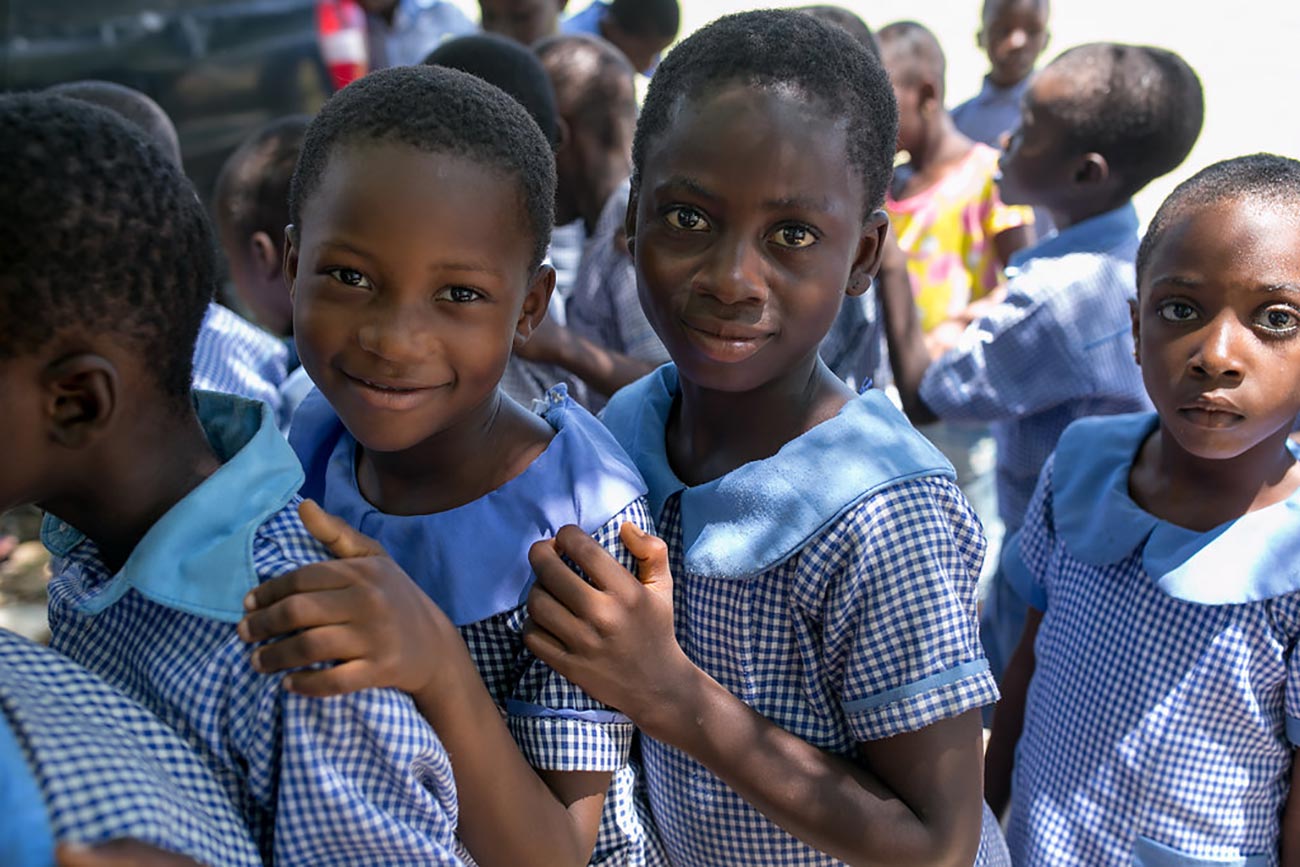
Challenging Heights has rescued over 1,600 children since they’ve opened their shelter doors. Beauty for Freedom is here to bring it’s current residents and students joyful art workshops. We’re here to have fun with them. We have a line-up of amazing photography workshops, where we will be pasting up large-scale images of their amazing faces in partnership with Jr’s world-renowned Inside Out Project. We have textile design workshops planned, where some patterns created will be sent to designers who will then produce limited-edition items to be sold, with proceeds returning to CH. We also have a large mural planned for their community wall, where the Survivors can admire their creations for a long time to come. We thank you for your support in making all this possible, and we ask for your continued support for this wonderful cause. If you can, please go to beautyforfreedom.org and enter a donation that’s right for you, with comment; ’for challenging heights’. In gratitude, we thank you!

